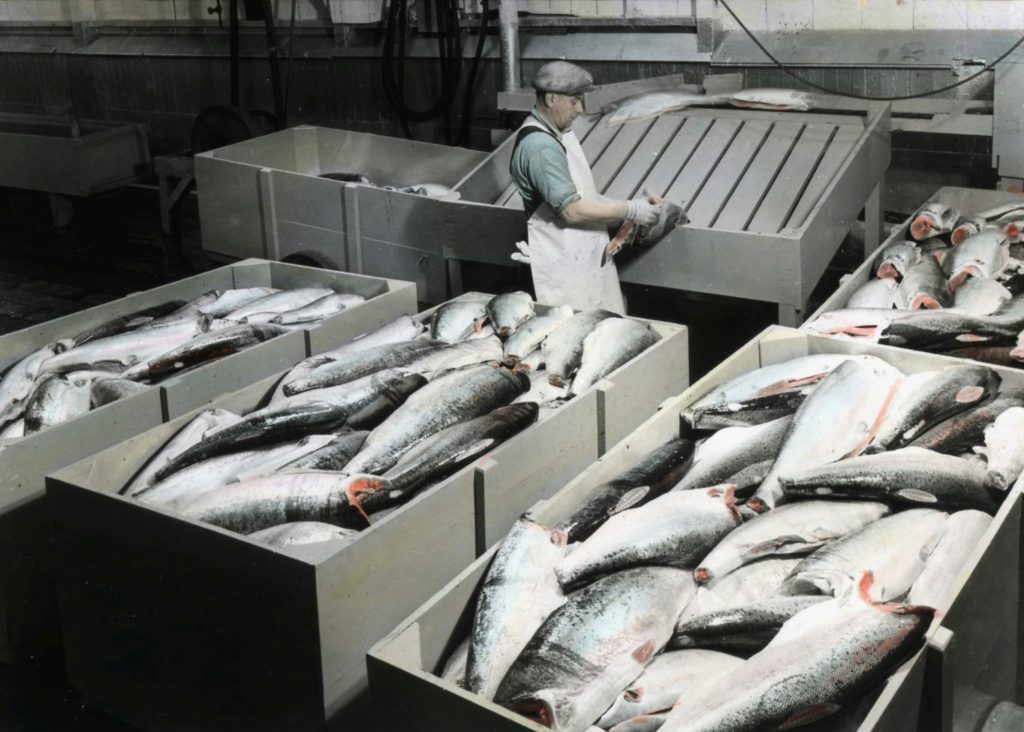California Wildfires: Economic Fallout and Market Implications
The recent wildfires raging across Southern California, particularly in the Greater Los Angeles area, are not just a human tragedy; they are also a significant economic event with potential repercussions for various markets. The widespread destruction, impacting at least 40,000 acres according to reports, is likely to trigger a chain reaction impacting insurance, real estate, and potentially even the technology sector.
**Insurance Sector Under Scrutiny:** The immediate impact will be felt by insurance companies. The scale of destruction, coupled with strong winds exacerbating the fires, suggests substantial payouts are on the horizon. This could lead to reduced profitability for insurers, potentially triggering a drop in their stock valuations. Investors should closely monitor earnings calls from major insurance providers for guidance on the potential financial hit. Furthermore, increased premiums and stricter underwriting criteria are anticipated in fire-prone areas, impacting consumer spending and overall market sentiment.
**Real Estate Sector in the Crosshairs:** The images of charred vehicles along the Pacific Coast Highway, as reported by Fortune, are a stark reminder of the devastating impact on real estate. Property values in affected areas are likely to decline, at least in the short term. This could lead to mortgage delinquencies and foreclosures, putting pressure on lenders. The ripple effect could also be felt in the broader housing market, potentially impacting real estate investment trusts (REITs) focused on California properties.
**Supply Chain and Business Disruption:** While not immediately apparent, prolonged wildfires can disrupt supply chains, particularly for companies with manufacturing facilities or distribution centers in the affected region. This may lead to production delays, impacting revenues and potentially investor confidence. The potential for business interruption is not to be overlooked as it can affect various industries, from agriculture to tech, depending on the geographical proximity to the fires.
**Infrastructure Concerns:** The need for immediate relief and long-term infrastructure repair and rebuilding is expected to spur government spending. While this could create potential opportunities for construction and engineering firms, it will also add to already strained state and federal budgets. The financial markets will watch the government response closely.
**Market Sentiment and Volatility:** Finally, the pervasive sense of uncertainty created by such large-scale disasters will undoubtedly increase market volatility. Investors may react by shifting funds to safer havens, potentially impacting equity markets. We will be closely monitoring trading volumes for these patterns in the coming days and weeks. As the situation evolves, it is crucial to stay informed and carefully assess potential risks and opportunities.
**Conclusion:** The California wildfires present a complex scenario with economic ramifications reaching far beyond the immediate devastation. Investors should remain vigilant, conduct thorough due diligence, and be prepared for potential market fluctuations in the short term. We will continue to provide updates and in-depth analysis as the situation develops.
Tags: California, California Wildfires, economic impact, Greater Los Angeles wildfires, Insurance, Investment Risk, Market Volatility, real estate, supply chain, wildfires
Red Dye No. 3 Ban: Impact on Food and Pharma Sectors
The U.S. Food and Drug Administration (FDA) has finally moved to ban Red Dye No. 3, a synthetic food coloring linked to behavioral issues in children and cancer in animal studies. This action, coming decades after the dye was barred from cosmetics due to similar concerns, will have ramifications across the food and pharmaceutical industries.
The FDA’s decision follows a 2022 petition from food safety advocates and sets a 2027 deadline for manufacturers to reformulate products currently containing Red Dye No. 3. This means companies in the processed food, snack, and beverage sectors will need to invest in R&D to find suitable, safer alternatives. The ban also impacts the pharmaceutical industry, as the dye is used in some ingested drugs.
While the health risks associated with Red Dye No. 3 have been debated for decades, this ban will force companies to reevaluate their supply chains and product formulations. Consumers, increasingly aware of ingredients and health impacts, are likely to react positively. However, this shift also creates potential risks for companies who are slow to adapt, potentially impacting their market share and revenue streams. Conversely, this presents a significant growth opportunity for companies already focused on natural and sustainable food coloring alternatives.
The long-term financial implications of this ban are complex, impacting supply chains, research and development budgets, and potentially even M&A activity in the food science and ingredients space. Investors should watch closely to identify which companies are positioned to benefit from the shift and those that may face challenges. The FDA’s decision, while a health win, is also a catalyst for change, marking the next chapter of the food and pharmaceutical industry landscape.
Tags: FDA Ban, Food Industry, food safety, health risks, Investment Opportunities, Market Impact, Pharmaceutical Industry, R&D, Red Dye 3, Red Dye 3 Ban, supply chain
The Delicious Economics of Hanukkah: A Global Market Analysis
## A Festival of Food and Finance: Exploring the Hanukkah Market
The eight-night Jewish festival of Hanukkah, known for its symbolic lighting of the menorah and the miraculous oil, also boasts a vibrant culinary tradition. Beyond the spiritual significance, this tradition represents a significant, albeit often overlooked, economic force, impacting global food markets and consumer spending. This year, let’s delve into the delicious details of Hanukkah’s economic impact.
## Latkes, Sufganiyot, and the Global Supply Chain
The iconic dishes of Hanukkah – latkes (potato pancakes) and sufganiyot (jelly doughnuts) – drive demand for specific ingredients. Potatoes, a global staple, see a noticeable spike in sales leading up to Hanukkah. The demand extends to oils for frying, particularly vegetable oils and even more specialized oils preferred for their flavor profiles. Likewise, the production and sale of sufganiyot necessitates a robust supply chain for flour, sugar, yeast, and various fillings, all of which experience a seasonal surge in demand. This ripple effect through the agricultural and food processing sectors showcases the festival’s surprisingly extensive economic influence.
## A Growing Market: Hanukkah’s Economic Expansion
The celebration of Hanukkah is not confined to geographical boundaries; Jewish communities around the globe partake in the festivities. This international reach significantly impacts global food markets, creating opportunities for international trade in ingredients and finished products. As Jewish communities grow and become more diverse, so too does the range of Hanukkah foods, incorporating local ingredients and culinary traditions while maintaining the core elements of the festival.
## Beyond the Kitchen: The Wider Economic Impact
The economic implications extend beyond the grocery store. The demand for Hanukkah-themed products, including menorahs, dreidels, and gifts, also contributes to the festival’s economic weight. Restaurants offering special Hanukkah menus, and retailers stocking holiday-themed goods, experience a seasonal increase in sales. The tourism sector can also benefit as families travel to visit loved ones or experience Hanukkah celebrations in different communities, fueling expenditure in hospitality, transportation, and local businesses.
## The Digital Hanukkah: E-commerce and the Festival
In today’s digital age, the convenience of online shopping has significantly impacted the way Hanukkah is celebrated. E-commerce platforms facilitate the purchase of Hanukkah-themed goods and food ingredients worldwide, further broadening the economic reach of the festival. This presents both opportunities and challenges for traditional retailers, who need to adapt to the changing consumer landscape.
## The Future of Hanukkah’s Economics
As global demographics and consumer behavior evolve, the economic impact of Hanukkah will likely continue to grow. The increasing awareness of sustainable and ethical sourcing of ingredients will also play a significant role in shaping the future of the Hanukkah food market. The holiday offers a fascinating case study of how cultural and religious traditions intertwine with economic activity, and the way in which these trends can influence and be influenced by globalization and technological advancements.
## Conclusion: More Than Just a Holiday
Hanukkah is more than a religious observance; it’s a significant economic event with global reach. Understanding its economic influence helps us appreciate the multifaceted nature of cultural traditions and their impact on various industries. It’s a reminder that even the most cherished celebrations have ripple effects that resonate far beyond the kitchen table.
Tags: Consumer Spending, cultural economics, e-commerce, food economics, global markets, Hanukkah, Hanukkah foods, Jewish holiday, latkes, sufganiyot, supply chain
Port Strike Averted as Longshoremen Reach Tentative Agreement
In a significant development for the maritime industry, the International Longshoremen’s Association (ILA) and the U.S. Maritime Alliance have announced a tentative agreement that effectively postpones the impending port strike. This decision comes after a series of negotiations aimed at addressing the concerns of dockworkers, ensuring that vital supply chains remain intact during a critical period for commerce.
The agreement, reached late Thursday, stipulates an increase in hourly wages for dockworkers, with top earners set to receive $63 per hour by the end of the new contract. This marks a substantial jump from the previous rate of $39, reflecting the growing recognition of the essential role that longshoremen play in the economy. The new contract is seen as a vital step in improving labor conditions and promoting stability within the sector.
The ILA had initiated a walkout at East and Gulf Coast ports earlier this week, which raised alarms among stakeholders across various industries reliant on maritime transport. The strike, which was slated to escalate, has now been postponed until January, allowing both parties additional time to finalize details and address lingering issues.
Florida’s response was swift, with Governor Ron DeSantis mobilizing the National Guard to mitigate potential disruptions caused by the strike. This proactive measure highlights the urgency and potential impact of the situation, demonstrating that the repercussions of a port strike extend well beyond the docks and into the broader economy.
As the negotiations unfolded, stakeholders from various sectors, including shipping lines and railroads, remained on high alert. The railroad industry, in particular, was preparing contingency plans to navigate the challenges posed by the strike, with major players like Norfolk Southern Railway closely monitoring developments.
The delay of the strike is a relief for many, as supply chains have already been under strain from previous disruptions. The ongoing global pandemic, coupled with fluctuating demand and other geopolitical factors, has made the smooth operation of ports more crucial than ever. With the holiday season approaching, the timing of this agreement is particularly fortuitous, as it allows goods to flow more freely during a peak shopping period.
While the tentative agreement signals a positive step forward, it also underscores the importance of ongoing dialogue between labor unions and employers in the maritime industry. As discussions continue, both sides are hopeful that they can reach a comprehensive and lasting solution that will benefit workers while maintaining the efficiency and reliability of port operations.
In conclusion, the agreement to postpone the port strike is a significant victory for dockworkers and a crucial development for the economy. As negotiations proceed, the focus will remain on securing a deal that addresses the needs of labor while ensuring the seamless operation of one of the country’s most vital economic arteries. The maritime industry, along with consumers and businesses alike, will be watching closely as this situation continues to evolve.
Tags: labor agreement, longshoremen, Port strike, Port strike update, supply chain, wage increase
Historic Dockworker Strike Disrupts East and Gulf Coast Ports
In a momentous move unseen for nearly half a century, approximately 45,000 dockworkers from the International Longshoremen’s Association (ILA) initiated a strike on the East and Gulf Coasts early Tuesday morning. This significant action marks the first large-scale strike since 1977, driven by escalating demands for better wages, improved benefits, and job security amidst growing concerns over automation in the maritime industry.
As the contract between the ILA and port authorities expired, workers across various states, from Maine to Texas, walked off the job, effectively shutting down ports that handle more than half of the nation’s container imports. The strike has sent ripples through the supply chain, jeopardizing the transport of essential goods ranging from consumer products to industrial materials. The ramifications are expected to be felt deeply across sectors reliant on these ports, including the chemical industry, which faces significant disruptions in both imports and exports.
Union leaders have expressed unwavering confidence in their cause, with Harold Daggett, a prominent figure in the ILA, declaring, “We are going to win.” The statement resonates with a growing sentiment among workers who are calling for a pay increase that reflects the rising cost of living and the integral role they play in the economy. In a show of solidarity, President Biden has called for a “meaningful” increase in dockworker pay, emphasizing the critical nature of their work.
The current strike is not merely a fight for higher wages; it is also a battle to safeguard jobs in the face of advancing automation technologies that threaten traditional roles within the industry. Many longshoremen are concerned that increased automation could diminish employment opportunities, making their fight not only about pay but about the future of their livelihoods.
As the strike continues, port operations along the East and Gulf Coasts remain severely impacted, leading to interruptions in the delivery of various goods. Industry experts warn that prolonged disruptions could result in significant economic losses, affecting businesses and consumers alike. With each passing day, the stakes grow higher, and the need for a resolution becomes increasingly urgent.
In conclusion, the dockworker strike is a pivotal moment in the ongoing discourse surrounding labor rights in the United States. It highlights the challenges faced by workers in an evolving industry and underscores the importance of fair wages and job security. As negotiations advance, the outcome will not only affect the dockworkers but also the broader economy and the future landscape of labor relations in the maritime sector.
Tags: automation, dockworkers, labor strike, Port strike, supply chain, wage increase





